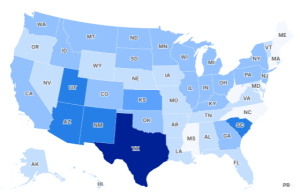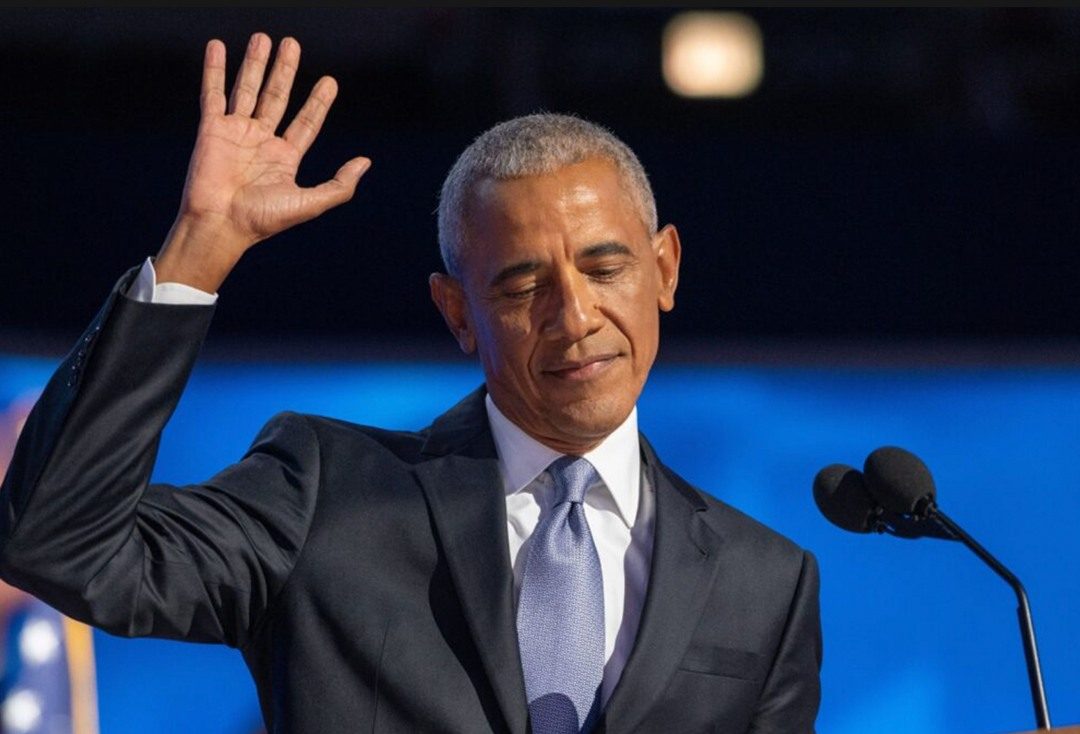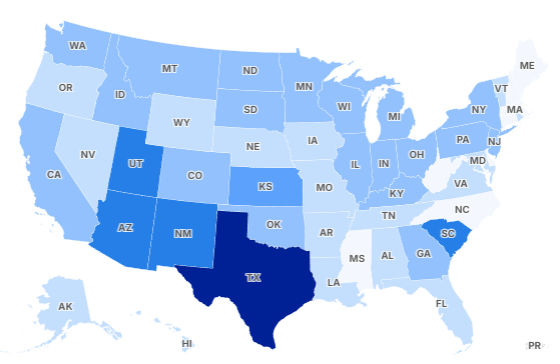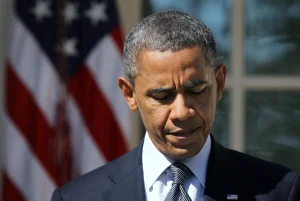Obama-Linked Telecom CEO Sentenced to 5 Years for Massive $128M Government Fraud
A Florida telecommunications executive with ties to the infamous “Obama phone” program has been sentenced to five years in prison and ordered to pay more than $128 million in penalties after pleading guilty to a sprawling fraud scheme targeting multiple federal aid programs.
Issa Asad, the 51-year-old CEO of Q Link Wireless LLC, was once hailed by some as a business leader helping to bridge the digital divide for low-income Americans. But now, he’s at the center of one of the most brazen government fraud cases in recent memory — one that involved deception, stolen taxpayer funds, and personal enrichment at the expense of vulnerable citizens.
The program Asad abused — known informally as the “Obama phone” program — has its roots in a federal initiative from 1985 called Lifeline. It was expanded under President Barack Obama to offer subsidized cell phones and wireless service to low-income Americans, earning it the nickname. While the name was never officially adopted by the government, the moniker stuck after viral clips from the 2012 election featured supporters referring to the free phones as coming from Obama.
Asad and his company turned what was supposed to be a lifeline for the poor into a personal cash machine.
According to the U.S. Department of Justice, Asad and Q Link Wireless defrauded the FCC’s Lifeline program out of tens of millions of dollars by submitting false subscriber information and claiming reimbursement for fake or ineligible customers. The misconduct spanned nearly a decade, from 2012 to 2021.
The scale of the fraud was enormous. Under plea agreements, Asad and Q Link agreed to pay the Federal Communications Commission over $110 million in restitution. Asad was also personally hit with a $17.5 million criminal fine for profiting from the scam. It is one of the largest financial penalties ever imposed by the FCC.
But that wasn’t the only program Asad targeted. He also admitted to laundering money obtained through the Paycheck Protection Program (PPP), which was set up to help small businesses survive the COVID-19 pandemic. Instead of using the funds to keep workers employed, Asad used them to bankroll a lavish lifestyle — including luxury jewelry, property taxes, private construction projects, a Land Rover payment, and even gifts to a university.
In total, he agreed to pay another $1.7 million in restitution to the Small Business Administration.
“This was a brazen scheme of staggering proportions,” said IRS Criminal Investigation Executive Special Agent Kareem Carter. “Mr. Asad prioritized his own greed, stealing $100 million from taxpayers. Today’s sentencing sends a clear message that our law enforcement partners remain vigilant and will vigorously pursue those who attempt to enrich themselves through fraudulent means.”
U.S. Attorney Hayden P. O’Byrne for the Southern District of Florida echoed the sentiment, calling the case “a deliberate and sustained attack on two vital federal programs.”
“Issa Asad and his company Q Link Wireless scammed programs aimed at supporting people and businesses in need,” O’Byrne said. “These outcomes underscore our resolve to make sure that those who mastermind corporate fraud schemes face personal consequences.”
According to court records, Asad and his company repeatedly submitted inaccurate or outright false data to the FCC, claiming government subsidies for wireless service that was never actually provided to eligible customers. In many cases, Q Link retained subsidies for customers who were no longer enrolled or who had never qualified in the first place.
The DOJ said Asad misled federal regulators about Q Link’s compliance with Lifeline program rules and manipulated the system to maximize fraudulent reimbursements.
The scheme allowed Asad to build a company worth millions — all on the backs of taxpayers and low-income individuals who relied on Lifeline to access basic communication services. His fraudulent conduct actively impeded the government’s ability to assist Americans in need.
According to FCC Inspector General Fara Damelin, the criminal activity directly undermined the core purpose of the Lifeline program and victimized “our most vulnerable populations.”
“This sentencing sends an important message that egregious criminal misconduct against FCC programs will not go unanswered,” she said. “FCC OIG is dedicated to stopping waste, fraud, and abuse and will continue to vigorously pursue investigations against wrongdoers.”
The “Obama Phone” Legacy and Political Fallout
Though the Lifeline program began decades before Barack Obama took office, its massive expansion under his administration — particularly in terms of wireless service — made it a political lightning rod.
In 2012, a viral video featuring a woman in Cleveland praising Obama for giving out free phones helped crystallize the “Obama phone” label. While critics slammed the program for encouraging dependency and waste, others argued that access to phones and mobile data was essential for job seekers, emergency contact, and basic communication in the 21st century.
For telecom companies like Q Link, participation in Lifeline meant government reimbursements in exchange for offering free or discounted service. But the lack of adequate oversight opened the door for fraudsters to exploit the system.
Some companies genuinely aimed to help underserved communities. Others, like Q Link, used it as a cover to rake in millions in federal subsidies while providing minimal — or fake — services in return.
The political implications of Asad’s conviction are significant. While there is no evidence that Barack Obama personally endorsed Q Link or had any ties to Asad, the case has reignited conservative criticism of the Obama administration’s approach to federal spending and entitlement programs.
The fact that Asad’s fraudulent empire was built on a program so closely associated with Obama has already fueled calls for more oversight of all similar initiatives. Several House Republicans have called for a full audit of the Lifeline program and a review of telecom companies currently receiving FCC subsidies.
Pam Bondi, the former Florida Attorney General and a key Trump ally rumored to be a future DOJ pick, has previously called for criminal prosecution of executives who exploit federal aid programs.
“This is exactly the kind of abuse we warned about,” Bondi said in an earlier interview. “When there’s money on the table and no serious oversight, you’re going to get people gaming the system. It’s time we started holding CEOs and corporations personally accountable.”
A Long Pattern of Questionable Conduct
Issa Asad is no stranger to the criminal justice system. According to the Miami Herald, he faced a murder charge in 2014 after allegedly running over a groundskeeper during a dispute over lawn care. Prosecutors eventually downgraded the charge to misdemeanor culpable negligence. Asad pleaded not guilty and received a one-year probation sentence and a $225 fine.
That incident, while shocking, didn’t prevent him from continuing to build Q Link Wireless into a major player in the federal subsidy space. At its peak, Q Link served millions of supposed customers across multiple states and received hundreds of millions in federal funds.
With his latest conviction, however, Asad’s career appears to be over — and federal authorities have made it clear they intend to continue investigating others who may have committed similar fraud.
For taxpayers, it’s another reminder of how easily government aid programs — even those with noble goals — can be corrupted without proper oversight. And for the Biden administration, the sentencing marks a politically sensitive moment as critics push for deeper reform of federally funded welfare programs.
Conclusion: A Warning Shot to Fraudsters Nationwide
The downfall of Issa Asad is more than just a cautionary tale. It’s a signal from federal prosecutors, regulators, and lawmakers that abuse of public trust — especially in times of crisis — will not be tolerated.
While the “Obama phone” label may have been a political nickname, the damage caused by Asad’s scam is all too real. Vulnerable Americans lost access to services. Taxpayer dollars were stolen. And trust in government programs was further eroded.
For Asad, the price is five years behind bars and a historic $128 million penalty. For the rest of the country, it’s a stark warning: greed, even under the guise of public service, will be prosecuted.|

Emily Johnson is a critically acclaimed essayist and novelist known for her thought-provoking works centered on feminism, women’s rights, and modern relationships. Born and raised in Portland, Oregon, Emily grew up with a deep love of books, often spending her afternoons at her local library. She went on to study literature and gender studies at UCLA, where she became deeply involved in activism and began publishing essays in campus journals. Her debut essay collection, Voices Unbound, struck a chord with readers nationwide for its fearless exploration of gender dynamics, identity, and the challenges faced by women in contemporary society. Emily later transitioned into fiction, writing novels that balance compelling storytelling with social commentary. Her protagonists are often strong, multidimensional women navigating love, ambition, and the struggles of everyday life, making her a favorite among readers who crave authentic, relatable narratives. Critics praise her ability to merge personal intimacy with universal themes. Off the page, Emily is an advocate for women in publishing, leading workshops that encourage young female writers to embrace their voices. She lives in Seattle with her partner and two rescue cats, where she continues to write, teach, and inspire a new generation of storytellers.









